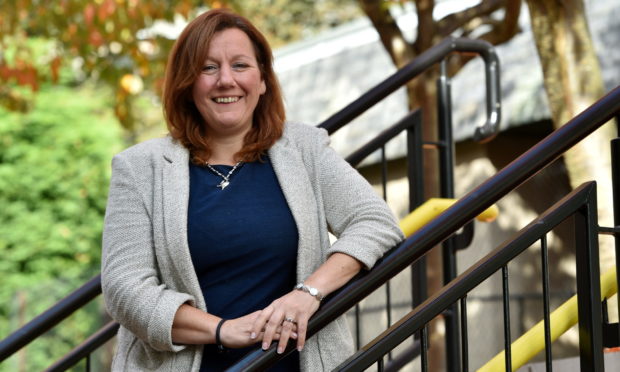A leading psychologist has said the emotional toll coronavirus is having on frontline staff is like being in a car crash.
NHS Grampian has launched new tools for medical and care staff, and members of the general public, who are struggling with their mental health amid the pandemic.
Its Psychological Resilience Hub is led by a team of senior psychologists and staffed by professionals from a range of disciplines.
Available every day, it allows people from across the north-east and Orkney to make telephone or video-call appointments and receive mental health first aid and coping strategies.
Dr Lynne Taylor, NHS Grampian director of psychology, said the effects of coronavirus are having a different impact on everyone.
“It would be normal for people to be struggling just now,” she said.
“When you’re in an uncertain environment, and things become less predictable, it’s normal for different feelings to arise.
“They could feel overwhelmed or more sad that they might be but, longer term, they will recover from this.”
Dr Taylor has been directing people to Maslow’s Hierarchy of Needs, a 1940s psychological theory about what people require in their lives in order to realise their full potential.
Beginning with basic needs such as food, water and warmth, it increases through three levels – safety, relationships and self-esteem – before peaking with self-actualisation.
But with widespread concerns about keeping themselves safe from coronavirus, many are currently unable to move past the second rung.
So many people are beating themselves up right now for not working out 7x a week, becoming a pianist etc. In this pandemic we are functioning in the bottom 2 level of needs. This isn’t the time to live our ‘best’ life but simple to do what we can. #bekindtoyourself @NHSGrampian pic.twitter.com/cMqjD3HZck
— Lynne Taylor (@drlynnetaylor) April 26, 2020
In turn, this has meant people are unable to function as they did before the pandemic hit – but are still putting pressure on themselves to continue as though nothing was amiss.
Dr Taylor said: “Lots of people are conflicted because they feel they are not achieving what they might normally be right now – but they just need to be thinking about their safety, basic needs and contact with other people.
“I’ve been saying that, right now, it’s not the time to live your best life – but to life your life as best you can in simple ways.”
While everyone is adjusting to a temporary “new normal”, some people are facing more challenges than others.
Frontline staff and other key workers have found their roles rapidly changing so they can better fight the pandemic and care for those who are ill.
Dr Taylor said the extra pressure they are facing could also be taking its toll.
“I think all staff in caring roles are in a very different situation just now,” she said.
“Lots of people are staying at home and getting lots more time with their family, and that’s the opposite for these people.
“They are actually working more – so they have less connection with loved ones and not as much time to focus on things at home.
“They have an additional layer to think about while managing this crisis.
“But also, maybe there are people at home seeing staff going off to work and wishing they could help out too.”
The NHS Grampian team has developed tailor-made resources for staff working in care homes and frontline wards to ensure they get the help they require.
These are centred around the same psychological first aid principals used elsewhere, and are designed to help workers take better care of themselves.
But health chiefs have been left surprised as fewer numbers of staff have been taking up the offer than expected.
Dr Taylor said the current stress of the job may be a contributing factor.
She said: “For some health care workers, while they are in the immediate crisis, the psychological effects of that don’t come until further down the line.
“People in emergency situations – like a car crash – aren’t thinking about what they are going through at that time.
“They are using their base instincts to get through it.
“It is not until after some time has passed, and they have time to process and reflect, that they can have more symptoms of distress.”
The seven key principles
There are seven key principles of psychological first aid, which Dr Taylor and her colleagues use to help people dealing with a crisis.
These begin with practical and physical support, tending to people’s immediate needs and other everyday tasks such as picking up shopping or a prescription.
People are shown how to protect themselves – both from infection or any other threats they may be facing – and are encouraged to seek comfort from others.
At the current time, this often means connecting better with the family members or friends they are living with, or through phone calls to speak to loved ones further away.
Advice on how to connect with others can also be given.
People who are distressed will be provided with information on coping strategies, and given education about their own response to their situation.
Tips can also be offered to help people better care for themselves while in a crisis, using an ABC method – representing awareness, balance and connections.
Awareness involves keeping informed about the situation, acknowledging and accepting feelings and responses, and using self-compassion and coping strategies.
Balance means getting the basics right – such as eating and sleeping well and exercising – while setting boundaries by leaving work at work, and taking regular breaks to recharge during the day.
People are also encouraged to maintain their social connections.
For more information, visit covid19.nhsgrampian.org
